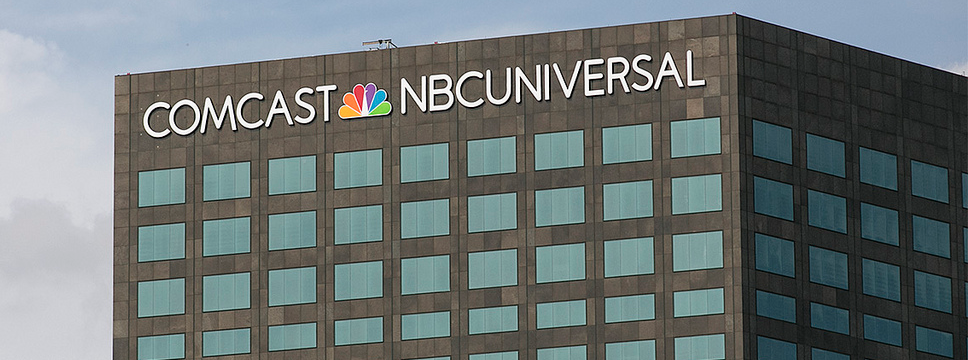Comcast/TWC Merger Critics: “Comcast Owes Us An Apology” for “Extortion” Comments
“Comcast owes us an apology,” Michael Copps said in a statement from Common Cause. Copps, a former FCC commissioner, was the lone dissenter when the FCC voted 4-1 to permit Comcast to acquire NBCUniversal in 2011.
“We oppose the Comcast merger because it’s anti-competitive, harmful to consumers and potentially dangerous to democracy,” Copps added. “Comcast’s suggestion that we’ve offered to withdraw our opposition in return for favors from the company is absolutely unfounded and untrue.”
“Comcast is trying to change the channel while quietly throwing around big money and influence in Washington,” Copps added, working an obligatory terrible TV pun in there. “If combined with Time Warner Cable, Comcast would gain a monopoly on cable services in much of the country and become the nation’s largest broadband provider,” he continued. “We remain convinced that no one should be permitted to gain such a stranglehold on the movement of news and information.”
Netflix and Discovery both made strong statements rejecting Comcast’s claims yesterday.
“It is not extortion to demand that Comcast provide its own customers the broadband speeds they’ve paid for so they can enjoy Netflix,” Netflix said in their statement. They continued:
“It is extortion when Comcast fails to provide its own customers the broadband speed they’ve paid for unless Netflix also pays a ransom. Netflix grudgingly paid to improve performance for our mutual customers, a precedent that remains damaging for consumers (who ultimately pay higher costs) and for other innovative businesses (that can be held over the barrel by Comcast to do the same).”
Several independent cable content companies felt similarly. A Discovery spokesman echoed Netflix’s sentiment, concluding that Comcast’s “continued strategy of intimidating voices that are not fully supportive of its position, is troubling.”
The CEO of small independent network Veria Living, Eric Sherman, also called out Comcast, saying in a statement: “All we have ever asked for is a level playing field for all programmers and a chance for all networks to get their messages to consumers. For a giant like Comcast – which is about to control 28 of the nation’s top 30 markets – to accuse us of extortion is absurd.”
Another independent network mentioned in Comcast’s filing, The Blaze, said that they “[have] not sought to extort anything from Comcast.” Their statement fell close to Discovery’s, adding, “Comcast has resorted to disparaging those who raise legitimate public policy concerns about the transaction.”
However, advocacy group Public Knowledge most effectively turned the tables right back on Comcast. “Comcast is treating Americans’ concerns about the merger like it treats its customers: By ignoring their complaints and giving them a sales pitch,” senior staff attorney John Bergmayer said.
“Comcast’s ‘best’ argument for this merger is that it’s already so big that things can’t get any worse for consumers and competition,” he continued. “Unfortunately, this is not true.”
Bergmayer concluded:
“Comcast chooses to attack some of its critics instead of putting forward a convincing rebuttal of their claims. Its response to the arguments from other companies is telling. Of course many of the companies who object to this deal have business reasons for doing so–just as Comcast is motivated by business concerns itself. But in this proceeding, companies from every area of the video and broadband industry have come forward. Programmers, broadcasters, cable and satellite TV companies, ISPs, internet content companies, internet backbone providers, and others have all joined consumers in voicing their objections.
“This is not a case of individual businesses looking to get leverage over Comcast, but of an entire industry realizing the threat Comcast poses to open markets and competition.”
Want more consumer news? Visit our parent organization, Consumer Reports, for the latest on scams, recalls, and other consumer issues.


